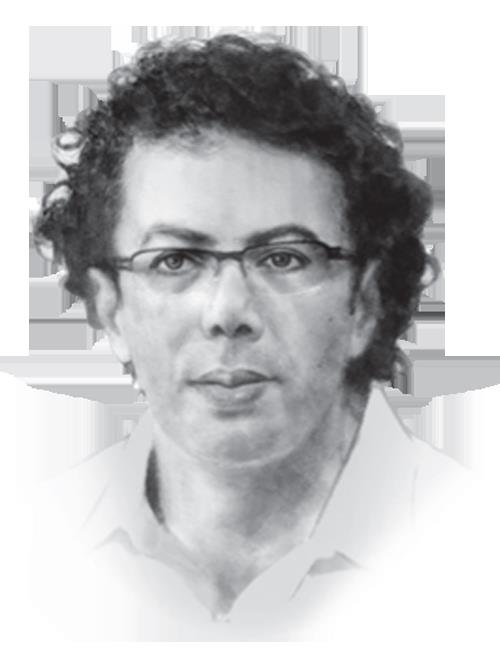
While the West’s attention is focused on the protests in Iran, it must be careful not to overlook the Iranian regime’s nuclear defiance.
For over a month, the Iranian regime has been hit with demonstrations across the country. The death of 22-year-old Mahsa Amini at the hands of the morality police has sparked a global outcry and a national mobilization. Reports indicate there have been protests in all 31 of Iran’s provinces, with scenes of women defiantly removing their hijabs and cutting off their hair in public, as well as crowds chanting “death to the dictator.” However, as the West seeks to find ways to address the regime’s crackdown, it is also important not to disregard Tehran’s nuclear defiance.
Time plays a critical role in nuclear negotiations. It affects the basic processes of negotiator cognition and motivation. The more a negotiating party is constrained by time, the more likely it will be ready to make concessions in order to reach an agreement. For example, in 2015, after eight years of coordinated economic sanctions between the US, EU, China and other partners had crippled Iran’s economy, with no improvements in sight and with a series concessions given to the Iranian leaders, the Islamic Republic finally agreed to the Joint Comprehensive Plan of Action, or nuclear deal.
Under the agreement with the permanent members of the UN Security Council (UK, US, France, China and Russia) plus Germany, and in exchange for the lifting of sanctions, the Iranian leadership agreed not to develop weapons-grade enriched uranium for 15 years, as well as reduce its uranium stockpile.
But one of the critical reasons the regime agreed to the deal was the financial pressure it faced. As former top US diplomat William J. Burns said: “Sanctions pressure was building and we wanted the Iranian government to feel the pain.”
Through years of coordinated, targeted and carefully designed sanctions that cut the Iranian regime out of the international financial system and even penalized third-party countries if they did not reduce their purchases of Iranian oil, Iran’s domestic economy contracted significantly. These curbs were so well designed that Iran’s oil exports fell from about 2.6 million barrels a day in 2011, to less than half that in 2014.
But now the Iranian regime most likely feels that it is in a far stronger position, both economically and militarily, than it was in 2014. This can be seen in the way the regime keeps adding to its demands in order to revive the nuclear deal.
The theocratic establishment of Iran believes it can keep buying time and advancing its nuclear program, while the US and especially the EU find themselves fighting the clock.
One of the reasons current sanctions against the Iranian regime are not as effective as in 2014 is that they are not imposed by the UN Security Council. When the US unilaterally withdrew from the JCPOA in 2018 under the former US administration, the White House attempted to reinstate plurilateral sanctions against Iran. But this effort failed. This left the US reimposing sanctions unilaterally since 2020.
The theocratic establishment of Iran believes it can keep buying time and advancing its nuclear program, while the US and especially the EU find themselves fighting the clock.
Dr. Majid Rafizadeh
While the US sanctions are not without impact, they have been far less detrimental than the coordinated sanctions that were established in the run-up to the JCPOA. Moreover, not only from the perspective of the Iranian leaders, they are in a stronger position militarily and economically than they were seven years ago, Tehran believes that the West is in a far weaker position. The Iranian leaders most likely believe that the war in Ukraine, and the sanctions on Russian oil and gas, have left Europe in an especially precarious position. With winter fast approaching, Iranian leaders likely believe that their oil is going to become an increasingly powerful bargaining chip.
A few weeks ago, negotiations to revive the nuclear deal went back in the deep freeze as Tehran doubled down on some of its conditions and European powers responded by saying they had reached the limits of their flexibility. As time goes on, if the West does not act immediately, it will lose more leverage as the Iranian regime inches closer to being a threshold nuclear state.
The International Atomic Energy Agency has warned that the information gap about the country’s activities is reaching dangerous levels. The IAEA added: “Iran’s decision to remove all of the agency’s equipment previously installed in Iran for surveillance and monitoring activities in relation to the JCPOA has also had detrimental implications for the agency’s ability to provide assurance of the peaceful nature of Iran’s nuclear program.”
In summary, while it is critical to hold the Iranian regime accountable for its brutal crackdown, the West must not overlook the regime’s nuclear advancements and defiance.
Dr. Majid Rafizadeh is a Harvard-educated Iranian-American political scientist. Twitter: @Dr_Rafizadeh












